Gardeners Mill Hill
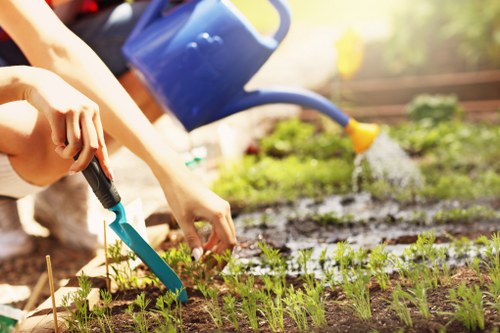
Mill Hill, a charming area located in the northern part of London, is renowned for its vibrant gardening community. Gardeners in Mill Hill benefit from the region's favorable climate, diverse plant varieties, and abundant green spaces. Whether you're a seasoned horticulturist or a budding enthusiast, Mill Hill offers a wealth of resources and opportunities to cultivate your passion for gardening.
The community here is both welcoming and supportive, providing numerous local gardens, nurseries, and clubs where gardeners can share knowledge and experiences. The rich soil and ample sunlight make it an ideal location for growing a wide array of plants, from ornamental flowers to edible vegetables.
One of the standout features of Mill Hill is its commitment to sustainability and eco-friendly gardening practices. Many local gardeners prioritize organic methods, composting, and the use of native plants to create sustainable and environmentally friendly gardens.
Local Gardens and Green Spaces
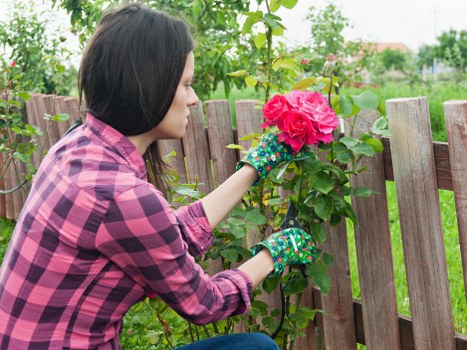
Mill Hill is home to several beautiful public gardens and parks that serve as both recreational areas and inspiration for gardening enthusiasts. These green spaces are meticulously maintained and showcase a variety of plant species, garden designs, and landscaping techniques.
One notable garden is the Mill Hill Park Garden, which features seasonal blooms, serene water features, and winding pathways that invite visitors to explore and enjoy the natural beauty. The park also hosts regular gardening workshops and events, providing valuable learning opportunities for both beginners and experienced gardeners.
In addition to public parks, many private estates in Mill Hill boast stunning gardens that highlight the skills and creativity of local gardeners. These gardens often serve as showcases for innovative gardening ideas and sustainable practices, inspiring others in the community to adopt similar approaches.
Nurseries and Gardening Supplies

Access to quality gardening supplies is essential for any gardener, and Mill Hill excels in this area. The region is dotted with numerous nurseries and garden centers that offer a wide range of plants, tools, and accessories to meet every gardener's needs.
Heritage Nurseries is one of the most popular destinations for gardeners in Mill Hill. They provide a diverse selection of plants, including rare and exotic varieties that are hard to find elsewhere. Additionally, their knowledgeable staff are always on hand to offer expert advice and tips on plant care.
For those who prefer eco-friendly options, several local garden centers specialize in sustainable products such as organic fertilizers, compost bins, and reclaimed garden materials. These stores not only cater to the practical needs of gardeners but also promote environmentally responsible gardening practices.
Gardening Clubs and Community Groups
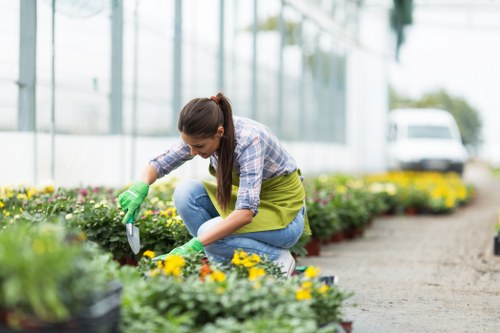
Community engagement plays a vital role in the gardening scene of Mill Hill. Numerous gardening clubs and community groups bring together enthusiasts to share their passion, exchange ideas, and collaborate on various projects.
The Mill Hill Horticultural Society is a prominent organization that organizes regular meetings, lectures, and plant exchanges. Members benefit from access to exclusive events, member-only garden tours, and opportunities to participate in community garden projects.
Additionally, there are specialized clubs for those interested in specific aspects of gardening, such as organic gardening, container gardening, and ornamental horticulture. These groups provide targeted support and resources, fostering a sense of camaraderie among gardeners with similar interests.
Education and Workshops
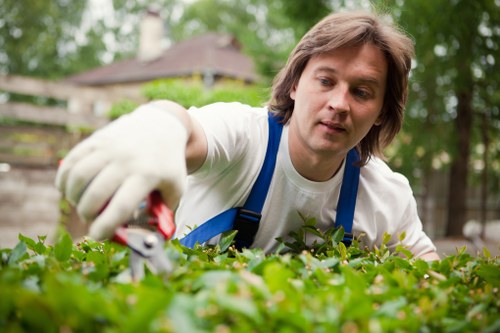
Education is a cornerstone of the gardening community in Mill Hill. Several local institutions and organizations offer workshops, courses, and seminars designed to enhance gardeners' knowledge and skills.
The Mill Hill Botanical Institute offers a range of classes covering topics such as plant propagation, soil health, pest management, and landscape design. These courses are tailored to different skill levels, ensuring that everyone from novices to experienced gardeners can benefit.
Moreover, many nurseries and garden centers host free or low-cost workshops on specific gardening techniques and trends. These events provide hands-on learning experiences and are a great way to stay updated with the latest developments in the gardening world.
Sustainable and Organic Gardening Practices
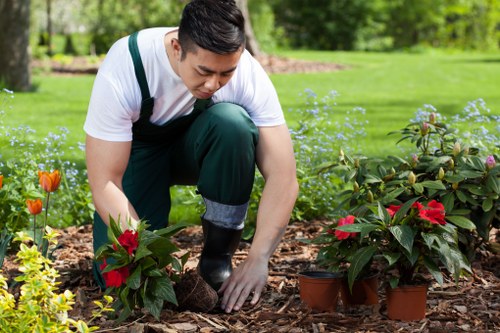
Sustainability is at the heart of gardening in Mill Hill. Many local gardeners prioritize eco-friendly methods to minimize their environmental impact and promote biodiversity.
Organic gardening is widely practiced, with a focus on using natural fertilizers, compost, and pest control methods. By avoiding synthetic chemicals, gardeners help maintain healthy soil and protect beneficial insects and wildlife.
Additionally, rainwater harvesting and greywater recycling are common practices among Mill Hill gardeners, allowing them to conserve water and reduce their reliance on municipal water sources. These sustainable approaches not only benefit the environment but also lead to healthier and more resilient gardens.
Local Flora and Fauna
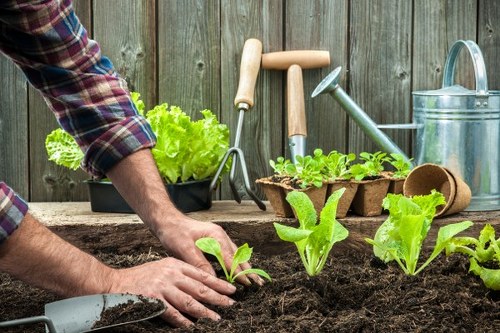
The diverse flora and fauna of Mill Hill contribute to the region's rich gardening environment. Gardeners have access to a wide variety of native and exotic plants, as well as a vibrant ecosystem that supports pollinators and other beneficial wildlife.
Common plants found in Mill Hill gardens include roses, lavender, daffodils, and a variety of herbs and vegetables. The region's mild climate allows for a long growing season, enabling gardeners to cultivate both spring and summer blooms.
In terms of fauna, gardens in Mill Hill attract bees, butterflies, birds, and other pollinators that play a crucial role in plant reproduction and garden health. By creating habitats that support these species, gardeners help maintain ecological balance and enhance the beauty of their gardens.
Seasonal Gardening Tips
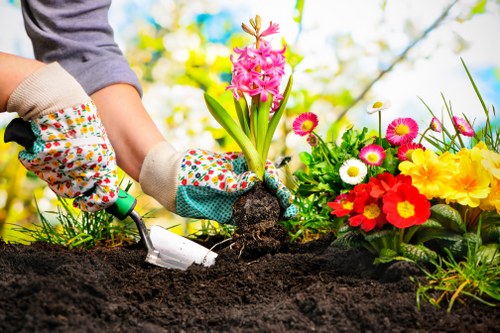
Successful gardening in Mill Hill involves understanding and adapting to the changing seasons. Each season brings its own set of challenges and opportunities, requiring different approaches to plant care and garden maintenance.
Spring: This is the time to prepare your garden for the growing season. Start by clearing out any debris, pruning trees and shrubs, and planting early-season bulbs and perennials. It's also a good time to fertilize your plants and set up rainwater collection systems.
Summer: During the warmer months, focus on regular watering, especially for newly planted areas. Mulching can help retain moisture and suppress weeds. Additionally, keep an eye out for pests and diseases, addressing them promptly to prevent outbreaks.
Autumn: As the weather cools, begin harvesting late-season vegetables and planting hardy perennials. This is also the time to rake fallen leaves, compost them, and prepare your garden beds for the winter months.
Winter: While many plants go dormant, winter is a great time to plan for the upcoming growing season. Protect sensitive plants with mulches or covers, and perform any necessary repairs on garden structures and tools.
Gardening Challenges in Mill Hill

Like any gardening region, Mill Hill presents its own set of challenges that gardeners must navigate to achieve success.
Weather Variability: While the climate is generally favorable, unexpected weather changes such as heavy rains or sudden cold snaps can impact plant health. Gardeners need to stay informed about weather forecasts and be prepared to take protective measures when necessary.
Pest Management: Pests can pose a significant threat to gardens. Implementing integrated pest management (IPM) strategies, such as encouraging natural predators and using organic treatments, can help control pest populations effectively.
Soil Health: Maintaining healthy soil is crucial for robust plant growth. Regularly testing soil pH, adding organic matter, and practicing crop rotation can enhance soil fertility and structure, reducing the risk of nutrient deficiencies and soil-borne diseases.
Success Stories from Local Gardeners

The gardening community in Mill Hill is filled with inspiring success stories that highlight the dedication and creativity of its members.
The Green Oasis Project is a community initiative that transformed an abandoned lot into a thriving urban garden. Through collective efforts, local gardeners planted a variety of vegetables, herbs, and flowers, creating a green space that benefits both residents and the environment.
Another notable success is the Mill Hill Urban Orchard, where a group of gardeners established an orchard featuring fruit trees and berry bushes. The orchard not only provides fresh produce but also serves as an educational center for teaching sustainable fruit farming practices.
These stories exemplify the positive impact that passionate gardeners can have on their community and the environment, inspiring others to pursue their own gardening endeavors.
Nearby Areas for Gardeners
Mill Hill is surrounded by several charming areas that are also great for gardening enthusiasts. Each nearby area offers unique features and resources that complement the gardening landscape of Mill Hill.
- West Finchley Known for its spacious parks and community gardens, West Finchley provides ample space for both small and large-scale gardening projects.
- Finchley Central: This area boasts a variety of nurseries and garden centers, making it easy to find specialized plants and supplies.
- Kingsbury: Kingsbury offers beautiful residential gardens and scenic walking paths, perfect for gathering inspiration.
- East Barnet: With its extensive green belts and nature reserves, East Barnet is ideal for gardeners interested in native plants and wildlife-friendly gardens.
- Totteridge: Totteridge's historic estates and well-maintained gardens provide a glimpse into traditional British gardening styles.
- Golders Green: Golders Green features a mix of urban and suburban gardens, along with several botanical shops.
- Hendon: Hendon's community-driven gardening initiatives and local workshops make it a vibrant area for gardeners.
- Colindale: Colindale's modern gardening facilities and public gardens offer diverse planting opportunities.
- Burnt Oak: Known for its family-friendly parks and gardens, Burnt Oak is perfect for novice gardeners.
- Whetstone: Whetstone has a variety of seasonal flower displays and community garden projects.
- Cricklewood: Cricklewood's urban gardens and rooftop green spaces are ideal for innovative gardening techniques.
- Temple Fortune: Temple Fortune offers picturesque garden settings and quiet neighborhoods for peaceful gardening.
- Brent Cross: Brent Cross provides access to large green spaces and gardening supply outlets.
- Mill Hill East: Similar to Mill Hill West, Mill Hill East has several garden enthusiasts and local gardening clubs.
- Willesden: Willesden's multicultural community brings diverse gardening traditions and plant varieties to the area.
Conclusion
Gardeners in Mill Hill are blessed with a supportive community, abundant resources, and an array of beautiful green spaces to nurture their gardening passions. Whether you're looking to start a new garden, learn advanced horticultural techniques, or simply enjoy the beauty of nature, Mill Hill offers everything you need to succeed as a gardener. Embrace the opportunities this vibrant area provides and contribute to the thriving gardening culture that Mill Hill is known for.
Frequently Asked Questions
1. What are the best plants to grow in Mill Hill's climate?
Mill Hill's temperate climate is suitable for a wide variety of plants, including roses, lavender, daffodils, herbs, and many vegetables. Native plants and those adapted to the local conditions tend to thrive best.
2. Where can I find gardening workshops in Mill Hill?
Gardening workshops are offered by local nurseries, the Mill Hill Botanical Institute, and community gardening clubs. Checking their websites or community boards can provide information on upcoming events and classes.
3. How can I join a gardening club in Mill Hill?
Joining a gardening club in Mill Hill typically involves contacting the club directly through their website or attending a meeting. Membership details are usually available online or can be obtained by visiting local community centers.
4. What sustainable gardening practices are recommended in Mill Hill?
Sustainable practices in Mill Hill include organic gardening, composting, rainwater harvesting, using native plants, and implementing integrated pest management strategies to promote environmental health.
5. Are there any community garden projects in Mill Hill?
Yes, Mill Hill has several community garden projects such as The Green Oasis Project and the Mill Hill Urban Orchard. These projects encourage community participation and provide shared spaces for gardening enthusiasts to collaborate.